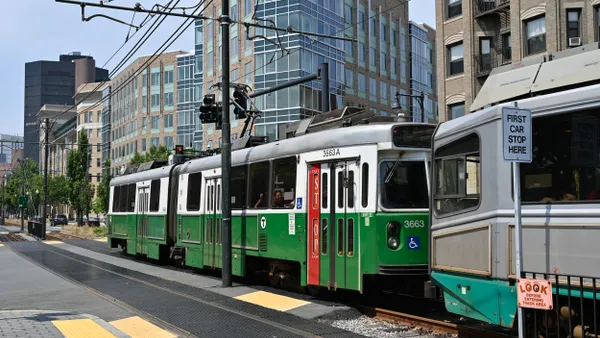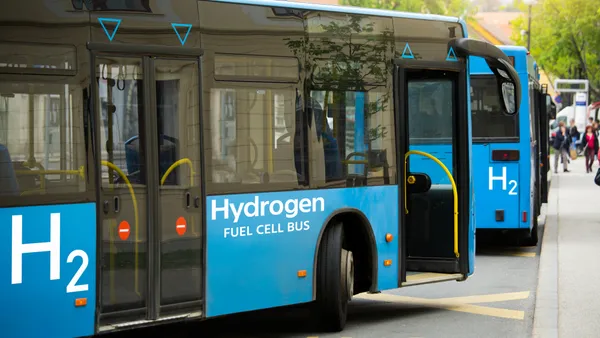Dive Brief:
- The Salt Lake City Council on Tuesday amended an ordinance to include peer-to-peer car-sharing companies under existing regulations involving operations at the airport. The amendment was made following claims that peer-to-peer car-sharing business Turo did not have an operating agreement with the airport, despite Turo's assertion it does not operate like traditional car rental companies and therefore shouldn't be regulated like them, according to The Salt Lake Tribune.
- The amendment is intended to increase equality between car rental service providers and ensure residents' health, safety and welfare. Violators are subject to fines of $500 to $1,000, depending on the violation.
- This comes on the heels of a similar measure, SB 190, advancing in the state legislature. The bill would require peer-to-peer car-sharing companies that operate at airports to have an agreement with the airport, but no fee is listed in the legislation. The Senate Transportation Committee unanimously voted in favor of that bill on Monday so it will now go to the full senate for consideration.
Dive Insight:
The measures in Utah are the latest government efforts to get a handle on the expanding sharing economy by implementing regulations. Other cities and states have passed regulations governing — or even have gone into battle with — home-sharing businesses, such as Airbnb, or ride-sharing businesses, such as Uber and Lyft. Boston, Detroit and New Orleans are among the cities that passed or examined short-term home rental regulations, and last year New York passed the nation's first ride-hailing regulations that include a driver cap.
Salt Lake City itself previously passed regulations requiring ride-hailing services to register and obtain a ground transportation permit for operating on airport property, just like other transportation businesses that operate on the property.
Peer-to-peer ride-sharing businesses allow those who own a vehicle to rent it out to other people when it's not in use. Some people consider the concept akin to Airbnb's short-term home rentals, but for vehicles. The services differ from formal car-sharing businesses such as Zipcar because instead of having designated spots for the vehicles throughout a city, the two people entering the agreement decide where to exchange the vehicle.
Proponents of Salt Lake City's new ordinance say peer-to-peer car-sharing businesses in Salt Lake City have a significant advantage over other rental companies because they are not subject to the same taxes, fees and regulations. The ordinance should also cut down on a practice for which some Turo users have been criticized — stopping in the airport's passenger pick-up lanes to exchange a vehicle. However, Turo repeatedly has responded by explaining that it doesn't operate like traditional car rental companies and therefore shouldn't be regulated like them. It says it's not requiring as many airport facilities or services, such as signs or areas to store and refuel a fleet, and it therefore shouldn't have to pay the same fees as other rental businesses.
Although the Salt Lake City ordinance passed last night, the state's legislation could be tougher to get through as next Thursday is the last day of the 2019 general session.
CORRECTION: An earlier version of this story said the ordinance would impose a fee of $6 per use on peer-to-peer car-sharing rentals. This part of the ordinance was stepped back, according to The Salt Lake Tribune.












